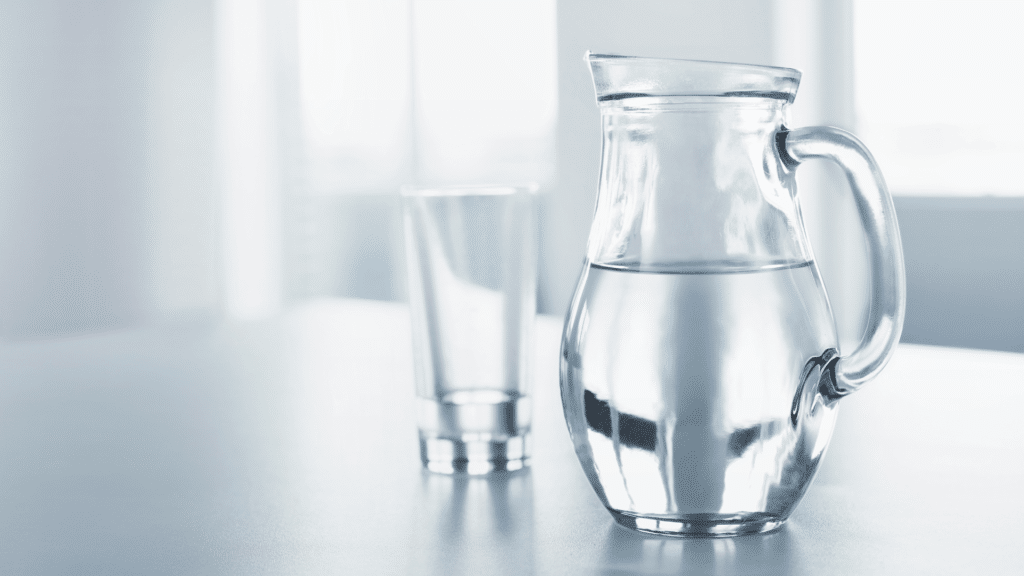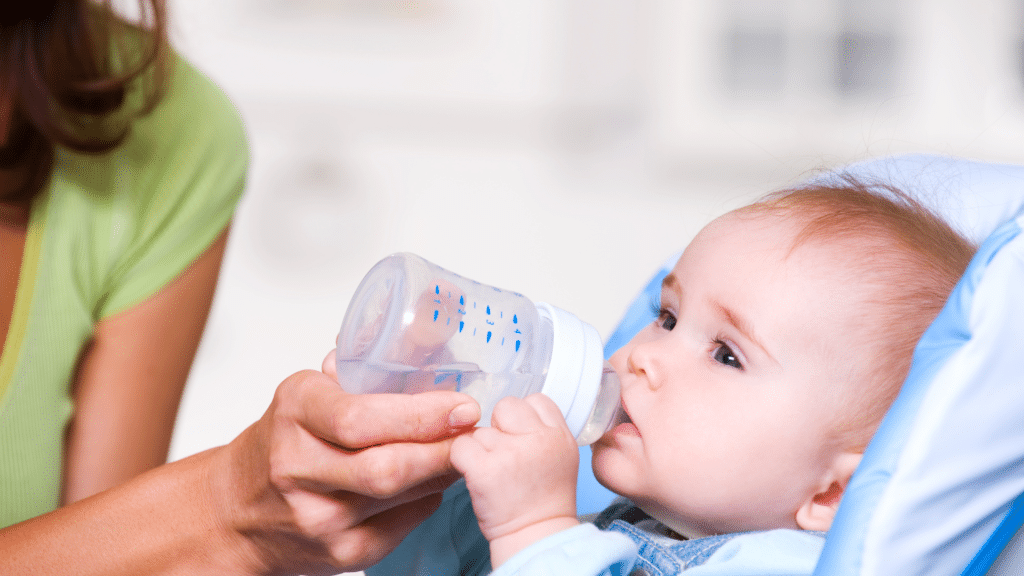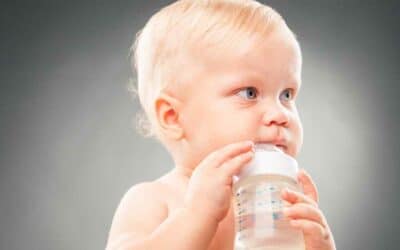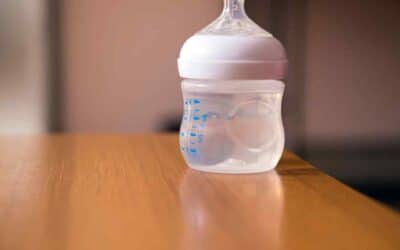The delicate skin of newborns, with its soft texture and vulnerability, often prompts a flurry of questions from new parents. One of the most debated topics in recent times has been, “Should you bathe newborns in distilled water?” While every parent’s primary goal is to ensure the utmost care for their infant, there’s a sea of conflicting information on this particular subject.
This article dives deep into the advantages and potential drawbacks of using distilled water for your baby’s bath. Whether you’re a first-time parent or a seasoned one looking to refresh your knowledge, this comprehensive guide will help you weigh the pros and cons, ensuring you make the best decision for your little one’s skin and overall health.

Understanding Distilled Water
When it comes to our babies, many parents want nothing but the purest and the best, especially when it concerns the tender and sensitive skin of a newborn. This brings us to an interesting point of discussion: should you use distilled water when bathing your baby? To make an informed decision, it’s essential to first understand what distilled water is and how it stands apart from other water types like tap water, purified water, and spring water.
Distilled Water and the Process of Distillation
Distilled water is created through a process called distillation. This process involves heating water to its boiling point, capturing the steam, and then condensing it back into a liquid in a separate container. This distillation process ensures that almost all contaminants, including bacteria, heavy metals, and other chemicals, are left behind. This leaves distilled water in an almost pure state, devoid of the many contaminants that can be present in other water sources. It’s no wonder why many parents consider it for their baby’s skin or even for making baby formula.
Comparing Distilled Water to Other Water Types
1. Tap Water: Sourced from municipal water systems, tap water might contain chlorine, fluoride, and even lead in some cases, especially if it’s sourced from older plumbing systems. While it is treated to kill bacteria and other contaminants, it may still contain low levels of certain chemicals, which some believe could be harsh on a newborn’s skin.
2. Purified Water: This is drinking water that has undergone a purification process to remove any contaminants. This might be through methods like reverse osmosis or carbon filtering. Though cleaner than tap water, purified water might not be as pure as distilled water. It’s often chosen for baby formula, but some parents use it for bath time too.
3. Spring Water or Mineral Water: Sourced from natural springs, this type of water contains minerals and other trace elements. While bottled water is treated to meet safety standards, it’s not free from all contaminants. Moreover, the minerals, though beneficial for drinking, might not be ideal for a baby’s skin, especially if the child has sensitive skin or conditions like eczema.
Why Consider Distilled Water for Your Baby?
Considering the delicate nature of a baby’s skin, many parents lean towards distilled water to minimize the risk of irritation from chemicals or contaminants. Distilled water provides a neutral pH, which might be gentler during a tub bath. Additionally, distilled water’s purity makes it a popular choice for making baby formula, ensuring that the baby’s feeding is free from potentially harmful contaminants.
However, it’s essential to consult with your baby’s healthcare provider before making any significant changes, be it using distilled water for bathing or feeding.

Benefits of Using Distilled Water
Every parent wants the best for their child, and this is especially true when it comes to what touches a newborn’s delicate skin. Given the complexities surrounding the different water types, many families are turning their gaze towards distilled water for its potential benefits. From bathing to feeding, distilled water presents certain advantages that might appeal to the whole family.
1. Absence of Chemicals, Minerals, and Contaminants
One of the standout benefits of distilled water is its purity. The distillation process ensures that the water is free from high levels of harmful chemicals, minerals, and contaminants that may be present in tap water or even some bottled water. This means no fluoride, chlorine, lead, or other harmful agents that municipal water sometimes contains.
2. A Friend to Sensitive Newborn Skin
Newborn skin is incredibly delicate. The absence of harsh chemicals and contaminants in distilled water means less risk of dry skin, diaper rash, or other irritations that can result from using tap water or well water. When giving your baby a sponge bath or using a soft washcloth to wash the baby’s face, using distilled water can be gentler. Moreover, when cleaning areas like the umbilical cord or the nasal passages with a cotton ball, distilled water can offer a clean, risk-free option.
3. Lower Risk of Urinary Tract Infections (UTIs)
Cleanliness is crucial when it comes to preventing infections, especially UTIs, which can sometimes be more common in baby girls. The genital area needs special attention during bath time. Using distilled water, free of bacteria and contaminants, for washing can potentially lower the risk of these infections. This is especially relevant when considering that some infections have been linked to certain bacteria present in municipal or well water.
Additional Considerations
While distilled water offers many benefits, it’s essential to maintain the right water temperature, ensuring it’s warm but not hot, to avoid heat loss for the baby. Parents should also always consult their baby’s healthcare provider before making any significant changes in their child’s routine.
Practical Tips for Bathing Newborns
Bathing a newborn is a ritual that can evoke an array of emotions, from apprehension for first-time parents to joy at watching your little one splash and enjoy. Ensuring that this experience is both safe and pleasant requires attention to a few vital details. Here are some practical tips to keep in mind:
1. Ensuring the Water Temperature is Just Right
The skin of a newborn is far more sensitive than that of adults. When preparing a tub bath, it’s essential to ensure the water temperature is neither too hot nor too cold. Aim for warm water, similar to body temperature. You can test it by dipping your elbow or wrist into the water. It should feel comfortably warm, not hot.
2. Gentle Cleansers vs. Plain Water: What’s Best?
The baby’s skin naturally produces oils that protect and nourish. Overwashing or using harsh soaps can strip these essential oils. For the first few weeks, using plain water is often recommended. If you feel the need for a cleanser, choose one specifically designed for babies – gentle, hypoallergenic, and free from strong fragrances. Remember, less is more.
3. How Often to Bathe Your Newborn and Why
Daily baths aren’t necessary for newborns. In the initial weeks, a sponge bath two to three times a week is sufficient to keep your baby clean. Overbathing can lead to dryness in the baby’s skin. Focus on washing their face, hands, and the diaper area daily using baby wipes or a soft cotton ball dipped in warm water.
4. Tips for Parents Using Tap Water: Ensuring It’s Safe and Free from Potential Irritants
If you’re using tap water, let it run for a minute or two to flush out any lead or contaminants that might be present. In areas with hard water or high mineral content, consider using a filtered water system to remove excess minerals and other potential irritants. Always check for any advisories in your area about drinking water quality, as this will impact bathing water quality as well.

Consulting Healthcare Professionals
As parents, we often find ourselves in a whirlwind of advice – from books, family, friends, and the vast expanse of the internet. While all this information can be invaluable, there’s something undeniably crucial about seeking guidance directly from healthcare professionals. They offer advice grounded in years of education, experience, and understanding of individual needs.
The Importance of Seeking Advice from Pediatricians and Dermatologists
Pediatricians and dermatologists are trained to understand the intricacies of infant health and skin care, respectively. Your child’s skin is not just a protective barrier but an indicator of their overall health.
- Baby’s Face & Skin: A baby’s face and body can exhibit signs of various conditions – from allergies to infections. Dermatologists and pediatricians can guide you on the right products to use, including soaps or creams, and also suggest appropriate remedies when issues arise.
- Feeding & Nutrition: When it comes to feed and baby formula, pediatricians provide expert advice. They understand the nuances of baby nutrition, ensuring your child receives the right balance of nutrients.
- Overall Health: From the care of the umbilical cord in the early days to boosting the immune system, pediatricians offer insights that go beyond generic advice.
Individualized Advice Based on Specific Circumstances
While general guidelines exist, children’s health often intersects with environmental factors, making individualized advice essential.
- Water Quality: If you live in areas with hard drinking water or known contaminants, it’s vital to discuss this with a healthcare professional. They can provide guidance on whether you need to take special precautions during bath times or when using water to make baby formula.
- Environmental Factors: Places with high levels of lead, bacteria, or other pollutants can impact a child’s health. Pediatricians can recommend specific tests or precautions to ensure your child’s safety.
- Unique Health Needs: Each baby is unique. Some might have a more sensitive immune system, while others could be prone to infections. Seeking personalized advice ensures your child gets the care tailored to their specific needs.

Conclusion
Navigating the early stages of parenthood is a journey filled with countless decisions, each made with the intent of ensuring the utmost care and well-being for our newborns. The debate on whether to bathe newborns in distilled water, like many parenting topics, brings forth varied opinions and considerations. As we’ve delved into the pros and cons, it becomes evident that the choice is highly individual, dependent on specific circumstances, and, most importantly, what each parent feels is best for their child.
While distilled water offers a level of purity that can be beneficial in avoiding potential irritants, it’s essential to balance this with practicality and available resources. Regardless of the choice made, the overarching principle remains consistent: the safety and health of the baby come first. Consulting with healthcare professionals, staying informed, and being attuned to the baby’s needs will always guide parents in the right direction.
In the end, the act of bathing a newborn is as much about cleanliness as it is about bonding, nurturing, and cherishing those irreplaceable early moments. Whether using distilled water or another trusted source, the warmth, love, and care with which it is done are what truly matters.
Did this article help you? Please feel free to comment below. If you have any questions, don’t hesitate to ask.



